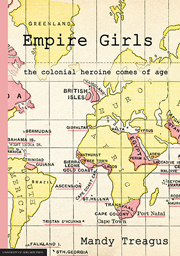5 - Conclusion: From heroine to hero
Published online by Cambridge University Press: 05 September 2014
Summary
Olive Schreiner's The Story of an African Farm, Sara Jeannette Duncan's A Daughter of Today and Henry Handel Richardson's The Getting of Wisdom are three examples of Bildungsromane in the late nineteenth-century and early twentieth-century Bildungsromane. All are written by women writers from British invader/settler colonies, and all deal with the progress of female protagonists. In their negotiations of the Bildungsroman form, these writers reflect the frictions arising from various and often conflicting discourses. Such friction results in an ambivalence of voice, which can be seen as a condition of all postcolonial fiction and, indeed, of feminism. Conflicts can also be seen in the narrative ends of these fictions, in that two plots result in the death of the heroine and the other must avoid closure altogether in order to refuse this resolution. The writers reflect their multiple positions in the Empire, many of which result in their own colonisation. They are colonials, removed from and overlooked by the imperial Centre; they are women in an entrenched patriarchy; they are intellectuals and writers in pragmatic emerging cultures in which the arts are feminised and disregarded. They are also members of invading/settling groups, usurping the indigenous occupants of their lands; they are part of the largest empire on earth, and thereby the beneficiaries of the imperial dividend; they are middle-class, educated, mobile and white. As both Othered and Othering, colonised and colonising, these writers produce fictions which reflect these complex subjectivities.
- Type
- Chapter
- Information
- Empire GirlsThe Colonial Heroine Comes of Age, pp. 243 - 250Publisher: The University of Adelaide PressPrint publication year: 2014



